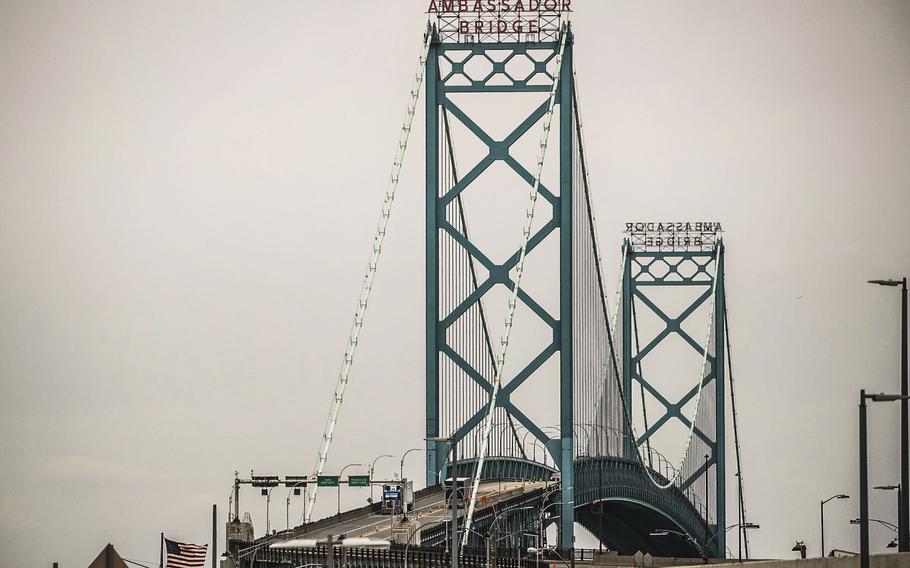
Ambassador Bridge in Detroit, Saturday, March 14, 2020. (Junfu Han, Detroit Free Press/TNS)
(Tribune News Service) — The United States will continue to bar nonessential travel from Canada through Aug. 21, according to a Federal Register document published Wednesday from Customs and Border Protection.
The document, which was signed by U.S. Department of Homeland Security Secretary Alejandro N. Mayorkas, pointed to a "specific threat to human life or national interests" with COVID-19 spread between the two countries. Infections in the U.S. have been rising again, fueled by the delta variant, which is accounting for about 83% of new cases.
Wednesday's announcement comes days after Canada announced it would allow vaccinated Americans to start crossing the border for nonessential travel beginning Aug. 9. The 14-day quarantine currently imposed in the country will also be waived.
The move shocked some federal lawmakers, especially those whose districts rely on the economic support of Canadian travelers.
"For months now people and businesses along the border have been strung along month after month holding out hope for the border to reopen," said Brian Higgins, a Democratic U.S. representative from Buffalo. "Today's decision by the Biden administration harms economic recovery and hurts families all across America's northern border; this is completely unnecessary."
Michigan Rep. Lisa McClain, a Republican whose district includes Port Huron, which borders Ontario, sent a letter to President Joe Biden on Wednesday urging loosened restrictions.
"Canada is beginning to reopen cross-border travel to Americans, and there's no reason why our country needs to continue to keep the border closed," McClain said in a statement. "Our northern border has been closed for well over a year, separating families and hindering small businesses in our border communities from the economic recovery they need to survive."
There's a similar feeling among politicians and constituents on the Canadian side of the border, said Sarnia Mayor Mike Bradley. Bradley said he and a group of other border city leaders briefed on the situation earlier in the week "were stunned."
"When the border closed, it closed jointly," Bradley said. "And the expectation, at least in my view, was to reopen jointly. And I would say in Canada, the response to the discrepancy between the two governments and the border is not being well received."
Bradley said this announcement mainly impacts Canadians who have relatives on the other side of the border. He said much of the frustration from Canadians stems from the "fundamental unfairness" of the governments not reopening at the same time.
"Keep in mind, we had a group of American politicians ... beating the drum that Canada needs to open its border and they need to do it now," he said. "So Canada has moved forward and done its part, and now it's not being reciprocated.
According to U.S. Customs and Border Protection, essential travel to the U.S. includes:
— U.S. citizens and lawful permanent residents returning to the United States
— Medical travel
— Those attending educational institutions
— Work travel
— Emergency response and public health travel
— Lawful, cross-border trade
— Official government or diplomatic travel
— Members and family members of the U.S. Armed Forces returning to the U.S. and others partaking in military-related travel or operations.
Canada recently surpassed the U.S. in its vaccination rate despite a slow start in administering the COVID-19 shots.
(c)2021 The Detroit News
Visit The Detroit News at www.detnews.com
Distributed by Tribune Content Agency, LLC.